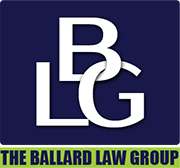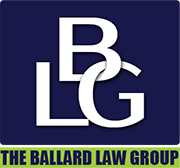Frequently Asked Questions
Deciding to file bankruptcy is never easy, but you must be well equipped with accurate bankruptcy information and personalized counsel from an experienced Atlanta bankruptcy attorney to make an informed decision.
-
Bankruptcy FAQ
-
Will bankruptcy affect my credit?
If you are in a position to file bankruptcy, your credit may already be poor. Filing bankruptcy may not make things much worse, but you should know that the bankruptcy filing will be on your credit report for ten years. On the plus side, the filing of bankruptcy may put you in a better position to pay your current bills and begin to rebuild your credit. In many cases, people who have declared bankruptcy are in a better financial position and with stronger credit scores than those who are still stuck wondering how to pay their overwhelming debts.
-
Will I lose my home or car if I file bankruptcy?
In many cases, you will be able to keep both your home and your car. You will be expected, however, to pay the non-exempt value to your creditors.
-
Do I have to make a decision to file at the meeting?No. This bankruptcy consultation is for your benefit so you can know your options and make an informed decision.
-
What happens at my free bankruptcy consultation?At your consultation, you can ask your attorney any questions that you may have. From there, your Atlanta bankruptcy attorney will go over your financial situation and discuss with you your options regarding bankruptcy.
-
What is credit counseling? Why do I have to take it?As part of the new Bankruptcy Law passed in April 2005, all bankruptcy clients must participate in credit counseling prior to filing their bankruptcy applications.
-
What does “secured” or “unsecured” debt mean?Secured debt is debt that allows a creditor to make a claim on an asset (i.e. home, real estate or car). Unsecured debt is held by creditors that have no claim to your assets, unless they file suit against you (i.e. credit cards).
-
How will filing for bankruptcy affect my credit score?If you are eligible for bankruptcy, unfortunately, your credit score has most likely already been damaged. Once you have any debt that is over 3 months (90 days) past due, a vehicle that has been repossessed, or a home in foreclosure, your credit score has already been negatively impacted. Filing a Chapter 7 or Chapter 13 and successfully meeting all requirements and repayment obligations of the case are the first steps to rebuilding your credit score.
-
Can I pick which debts to put in the bankruptcy?No. You must include all of your debts.
-
Can filing a Chapter 13 help me with my past due child support obligation?The new 2005 Bankruptcy Regulations deem past due child support a “priority debt”. Past due child support can be included in your Chapter 13 case, but it cannot be discharged. Instead, it will be consolidated with the rest of your debts and become part of your repayment plan, as determined by the court.
-
Will filing for bankruptcy save my home from foreclosure even if I have waited until the day before the sale?Yes. We can stop the foreclosure sale right up until the sale begins; however, we encourage you not to wait until the last minute as it can increase the risk of unforeseen circumstances that may prevent you from filing.
-
Will filing for bankruptcy stop repossessions, garnishments or pending law suits?Yes. Filing for bankruptcy will place an automatic “stay” on your assets/property and stop you from losing them. This stay informs creditors they may not take any action against you regarding your assets/property.
-
When will I get my discharge?Generally a Chapter 7 bankruptcy discharge is received 60 days after the 341 meeting of creditors. In Chapter 13, your discharge will be sent to you once you have completed the payments under the Chapter 13 payment plan.
-
How exactly does my debt go away?When you file for bankruptcy under either Chapter 7 or Chapter 13, an agreement is reached between you and your creditors. Under Chapter 13 you will repay some or all of your debts over a period of three to five years. Under Chapter 7, you are relieved of your responsibility to pay the debts and creditors can no longer contact you. This process is called a discharge of debts.
-
What is a bankruptcy mill?A “mill” is a large law firm that files many bankruptcy cases. These types of firms have a factory approach to the entire bankruptcy process and you become little more than a case number to them. Clients often do not get the personal attention they paid for and deserve from their attorney and support staff. Cases are often handled primarily by assistants rather than by the attorneys themselves.
The Ballard Law Group is NOT a bankruptcy mill. You will be treated with the utmost respect and dignity. We set our standards for customer service very high and demand that every Atlanta bankruptcy attorney on staff adheres to those standards. -
Can I file Chapter 7 if I have assets I want to keep?Yes, in certain circumstances, you can do what is called “reaffirming” a debt. In the Chapter 7 process, you may be able to reaffirm secured debts, such as a car loan or mortgage if you are current on your payments and continue to make your regular monthly payments. You can also choose to surrender these assets, in which case any past due balances will be discharged with your case.
-
What is Chapter 7 Bankruptcy?The chapter of the bankruptcy code that provides for what is known as “liquidation” or “clean slate”, Chapter 7, lets you discharge (wipe-out) most unsecured debts, such as credit card balances, medical bills, and even certain taxes. Some debts, such as child support, student loans, and recent taxes cannot be discharged through Chapter 7. Typically, people who file for Chapter 7 have no assets to protect and earn below the median income.
-
What is bankruptcy?Bankruptcy is a protection under federal law that allows a person to reorganize outstanding debts. Under bankruptcy law, debtors who owe more money than they can afford can either eliminate some (or all) of their debts or work out a payment plan to pay a portion (or all) of their debts over time.
-

